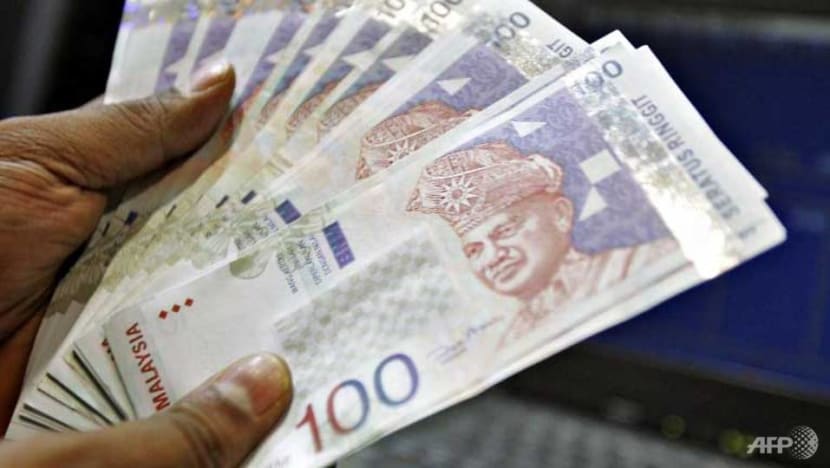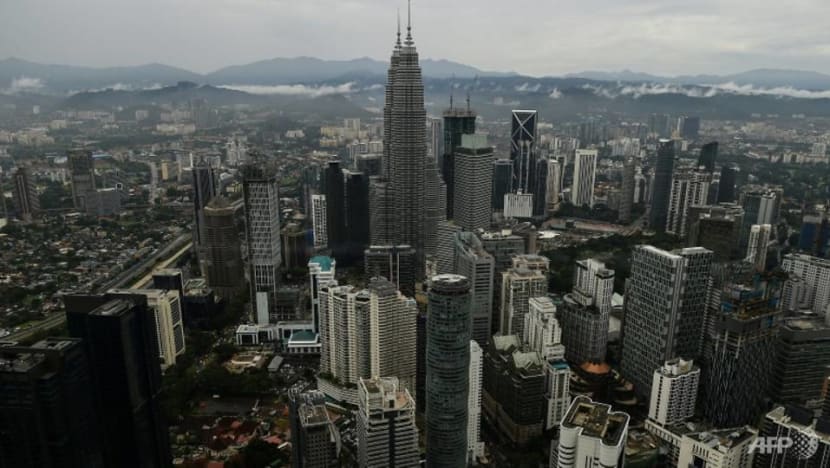Malaysia’s new minimum wage of RM1,500 kicks in on May 1 with trade unions, businesses divided

KUALA LUMPUR: Malaysian trade unions said they welcomed the raising of the minimum wage to RM1,500 (US$345) from May 1 describing it as a good start, while some businesses and employers have expressed concerns that this will impact the country’s post-pandemic economic recovery.
Malaysia’s new minimum wage order that takes into effect on May 1 was gazetted by the Human Resources Ministry on Apr 27.
Under the order, the minimum monthly wage has been raised to RM1,500 from the previous RM1,200.
According to the order, the hourly rate for the minimum wage would come up to RM7.21 and an RM69.23 daily rate for a five-day work week.
Employers with fewer than five staff will only be required to start paying at the RM1,500 minimum wage from January next year.
Malaysian Trade Union Congress (MTUC) president Abdul Halim Mansor told CNA that the new minimum wage was “reasonable” for now and that it was a good start.
“We support the raise and it is a good start. We understand the concerns of the employers, but they also have an obligation to ensure that the people have purchasing power. Otherwise, the economy will not develop because the workers do not have purchasing power,” he said.
Mr Abdul Halim however said that the minimum wage was not equivalent to the living wage cited by Bank Negara in its “The Living Wage: Beyond Making Ends Meet” report that was released in Mar 2018.
The report said the provisional estimates of a living wage in Kuala Lumpur back in 2016 range between RM2,700 for a single adult and RM6,500 per month for a couple with two children.
The living wage was defined in the report as an income level needed for a household to afford a minimum acceptable living standard.
This includes the ability to participate in society, the opportunity for personal and family development, and freedom from severe financial stress.
Mr Abdul Halim said that if employers did not want to raise wages then more people would rather join the gig economy where they could earn more compared to working in a factory.
Malaysia's minimum wage for workers was last raised from RM1,100 to RM1,200 in Feb 2020.
Under the National Wages Consultative Council Act 2011, the minimum wage must be reviewed every two years.
Cleaner K. Letchumi, who currently earns the minimum wage of RM1,200, welcomed the new policy.
“The cost of food has risen and our expenses keep increasing. RM300 is a lot for me and will be very helpful,” the 50-year-old sweeper and single mother of two who lives in low-cost flats in Kuala Lumpur told CNA.
The National Union of Bank Employees (NUBE) secretary-general J.Solomon said that the RM300 increase was the highest increment on record since the implementation of the minimum wage.
He however said that the minimum wage should be more than RM2,500, pointing to the Bank Negara report.
“The present government has taken a bold move compared to previously but they are still not matching the rightful minimum or living wage that is expected for a country moving towards developed nation status,” he told CNA.
Human Resource Minister M. Saravanan had said in April that it was time to implement the minimum wage.
"Let's see the bigger picture, there's no more employers' market. Today, anyone can drive a Grab and can get RM2,000, so why work for RM1,200 or RM1,500," he was quoted as saying by The Star.
He also said there were several industries or sectors that were agreeable to pay the minimum wage.
"And if some industries were not doing well, why are they still asking for 500,000 foreign workers? They cannot play hot and cold. If it's not good, then there's no need for so many workers," he reportedly said.

BUSINESSES “PROFOUNDLY DISAPPOINTED”: MANUFACTURERS FEDERATION
On the other hand, the Federation of Malaysian Manufacturers (FMM) said it was “profoundly disappointed” that calls for progressive adjustments to the minimum wage were disregarded.
“There is grave fear that the immediate jump to RM1,500 minimum wages will result in a steep cost increase and reverse the otherwise optimistic business recovery for 2022,” FMM president Soh Thian Lai said in a statement on Thursday (Apr 28).
He said that the industry repeatedly affirmed its support of a review of the minimum wages but given the current “fragile” business environment the adjustment should be done in a progressive manner.
It has called for an increase of RM150 in 2022 and a further increase of another RM150 in 2023 to reach the RM1,500 minimum wage.
Mr Soh said that this would have been more manageable for the industry.
“The increase in the minimum wage from the current RM1,200/RM1,100 to RM1,500 represents an immediate increase of 25%-36% on the basic salary which will have a tremendous knock-on effect to the overall payroll cost and have a spiralling impact on business cost that could potentially derail economic recovery,” he said.
Mr Soh added that the small and medium enterprises (SMEs), especially those in the suburban areas would be most impacted with this sharp rise in wage cost given that only the micro enterprises will be exempted for a period of eight months until Dec 2022.
He claimed that the increase in minimum wages will ultimately lead to greater inflationary pressures, with Mr Soh calling on the Government to ease the cost impact by providing all affected employers a wage subsidy to lessen their burden.
This would also ensure that the business recovery could continue at the intended speed, said Mr Soh.
Bank Negara governor Nor Shamsiah Mohd Yunos was quoted as saying by The Star in March that the new RM1,500 minimum wage should be implemented progressively to prevent disruptions to the country’s economy
She also said that the implementation of the policy must take into account the uneven recovery across industries from the COVID-19 pandemic, as well as increasing global uncertainties due to the geopolitical tensions between Ukraine and Russia.
The secretary-general of Small and Medium Enterprises (SME) Association of Malaysia Chin Chee Seong told CNA that many of their members, especially those in smaller towns were disappointed with the new minimum wage.
He said that most local workers were already earning more than the minimum wage and that the new gazette was more likely to affect wages of foreign workers.
“We were hoping that the implementation would be delayed until the end of the year so that we could prepare ourselves,” said Mr Chin, adding that some SMEs might have to consider moving operations to other countries in the region such as Laos and Cambodia.















